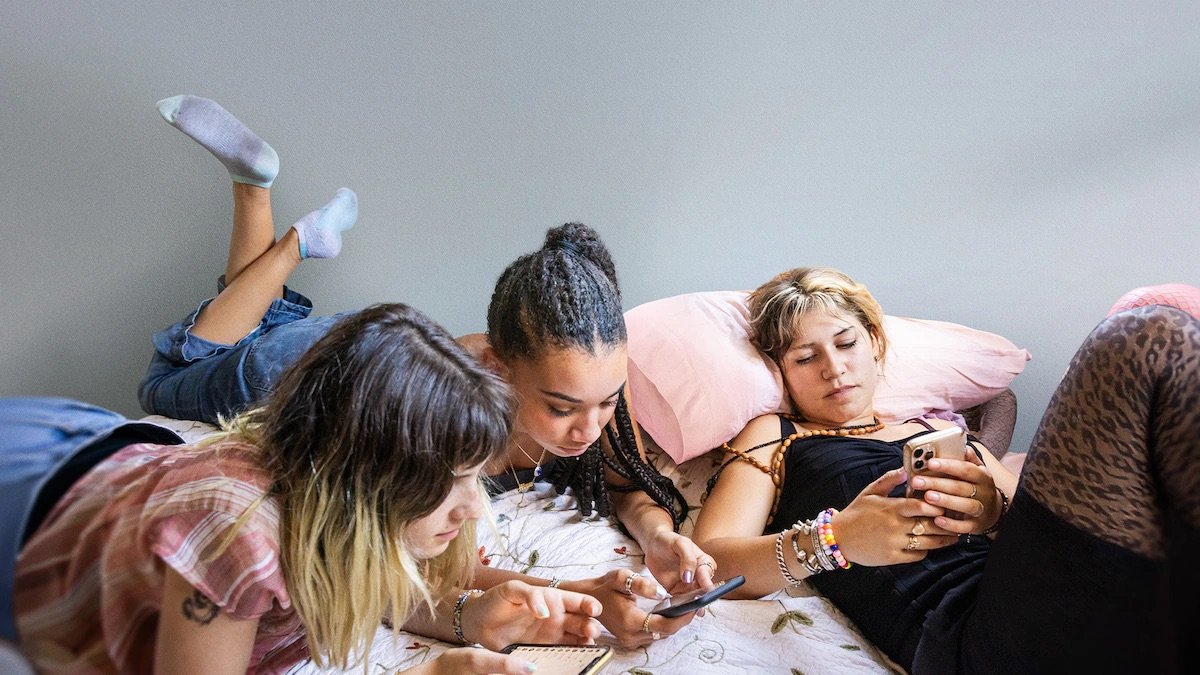By Bianey Lopez
The Carsey-Wolf Center at UC Santa Barbara hosted a screening of two episodes of Social Studies, a powerful new documentary series by Emmy Award-winning filmmaker Lauren Greenfield. The event drew students, faculty, and community members for a raw and reflective look at how social media is hijacking the lives of young people.
Filmed over a school year in Los Angeles, Social Studies provides an unfiltered window into the struggles of teens navigating online platforms. Greenfield explores topics such as bullying, identity, beauty standards, and mental health challenges through the lived experiences of 10 main characters, who represent a range of class backgrounds, sexualities, and identities.
The series aims to ensure that every teen can find a character—or at least one experience—with which they can relate, fostering empathy and understanding.
Greenfield said the public has become more critical in recent years of the influence of corporate-controlled algorithms on what teens see and how they interpret the world.
“I think it has gone from thinking it’s this very positive place for political speech and for social justice, to realizing how dangerous it is to have it be in the hands of forces that are not independent,” she said.
Greenfield was joined on the panel by two of the documentary’s participants, Jonathan Gelfond and Ivy D’Ambrosia, as well as moderator Miguel Penabella, a Film and Media Studies graduate student.
Miguel Penabella, left, a UCSB Film and Media Studies graduate student, moderates a discussion with filmmaker Lauren Greenfield, far right, after a recent screening of her docuseries “Social Studies” by UCSB’s Carsey-Wolf Center. Between them are two former high school students featured in the series: Ivy D’Ambrosia and Jonathan Gelfond.
Their conversation revealed that social media has become both a powerful platform for political activism and a space where teens’ identities are shaped by corporate algorithms, influencers, and online communities.
Gelfond, now a college student at UCSB, spoke on his dual experience of social media as both a tool for activism and a source of harmful content. “One of the more benign features of social media is that it can be used for activism,” he said. “But there’s also this side where teens are being fed content related to the rise of conservatism, Incel culture, or Andrew Tate’s influence.”
D’Ambrosia highlighted the importance of media literacy, noting that her relationship with social media has become more discerning since leaving high school. “The more that I’ve matured and the more that I’m getting a college education, it’s a lot easier for me to critically consume media and not internalize it as much,” she said.
A scene from filmmaker Lauren Greenfield’s docuseries “Social Studies,” which provides an unfiltered window into the struggles of teens navigating online platforms.
Filmmaker Greenfield said the docuseries has resonated widely, with teenagers often seeing their own struggles reflected on screen. “Kids identify so strongly with the stories in the film. It crosses class, geography, and race,” she said. “We’ve had kids say, ‘I’m LBTQ, I’ve been bullied at my school — it meant so much to see someone like me.”
Panelists urged parents to do more to support teens. “One of the best things a parent can do is build their child’s self-esteem,” said D’Ambrosia. Gelfond added that “open, honest conversations” and stronger school-based media literacy curriculums are key to preparing youth for a digital world.
Speaking as both filmmaker and parent, Greenfield said she now realizes the addictive nature of social media: “Before I did this, I would blame my son for being on social without taking into account that it’s like a drug, like an opiate, and we wouldn’t blame an addict in the same way.”
The docuseries is available with an accompanying free curriculum and parent guide at learner.org/socialstudies, in order to extend the conversation beyond the screen and into classrooms and homes nationwide.
Bianey Lopez is a graduating UCSB student, majoring in English with an emphasis in Literature and Mind. She wrote this article for her Digital Journalism class.



